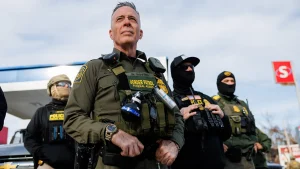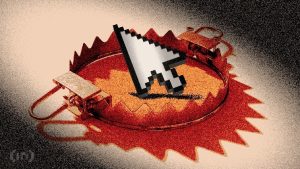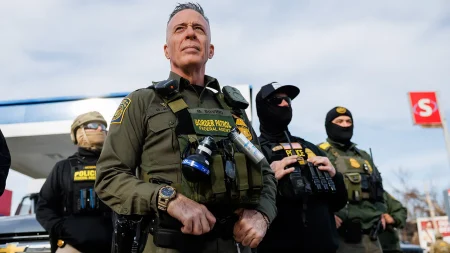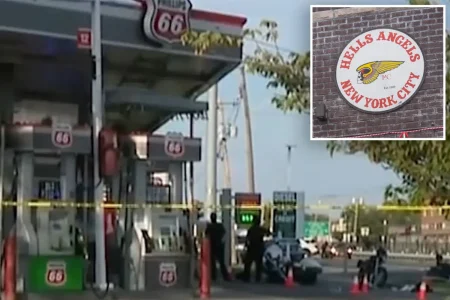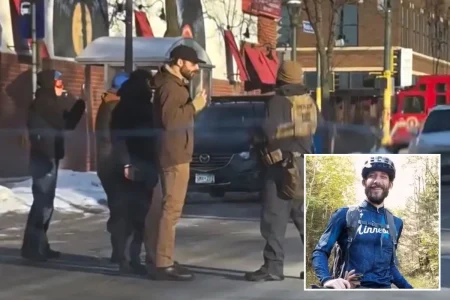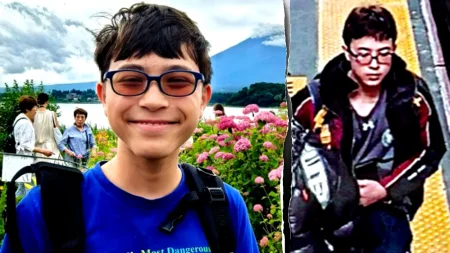Brazil’s Former President Removes Tracking Device Before Prison Term
Dramatic Escape Attempt: Former Brazilian Leader Makes Bold Move to Evade 27-Year Sentence
In a stunning development that has captivated the attention of political observers across Latin America, a former Brazilian president took the extraordinary step of removing his court-ordered electronic monitoring bracelet with a soldering iron just hours before he was scheduled to begin serving a lengthy prison sentence. This dramatic act of defiance marks a significant escalation in what has already been one of Brazil’s most contentious political sagas in recent memory.
The incident, which occurred as law enforcement authorities were preparing to transfer the former head of state to a federal penitentiary, has thrown Brazil’s political landscape into fresh turmoil. According to sources familiar with the situation, the tracking device was deliberately disabled in what appears to be a calculated attempt to evade justice. “This wasn’t a spontaneous decision,” noted political analyst Maria Cardoso, who has closely followed the legal proceedings against the former president. “The use of a soldering iron suggests premeditation and access to tools specifically acquired for this purpose.”
The 27-year sentence, handed down after a protracted legal battle that polarized Brazilian society, stemmed from multiple corruption charges linked to the massive “Operation Car Wash” investigation that has implicated dozens of high-profile Brazilian politicians and business leaders over the past decade. The former president has consistently maintained his innocence, characterizing the prosecution as politically motivated and designed to prevent his potential return to power. His supporters have rallied behind these claims, organizing frequent protests that have sometimes turned violent in major cities including São Paulo, Rio de Janeiro, and Brasília.
Political Fallout and Public Reaction to a Desperate Measure
The dramatic escape attempt has elicited sharply divided reactions across Brazil’s political spectrum. Supporters of the former president have characterized the action as justifiable resistance against what they perceive as political persecution, while critics view it as further evidence of contempt for the rule of law. “What we’re witnessing is the culmination of a dangerous narrative that places certain political figures above the law,” said Federal Judge Eduardo Mello, who was not involved in the case but has spoken publicly about its implications for Brazil’s judicial system.
Public sentiment appears equally fractured along pre-existing political lines, with polls indicating that Brazilians largely interpret the event through the lens of their prior political affiliations. The incident has dominated social media, news broadcasts, and street conversations across the country, further entrenching divisions in a nation already struggling with polarization. International observers have expressed concern about the implications for Brazil’s democratic institutions, with the United Nations and several diplomatic missions issuing statements urging respect for judicial processes.
The current administration has been measured in its official response, with the Justice Minister emphasizing that “no individual, regardless of their former position, stands above the legal system.” However, behind closed doors, government officials are reportedly concerned about potential civil unrest if the former president successfully evades capture or if forceful methods are used to apprehend him. Security measures have been heightened around government buildings in the capital and in major cities where demonstrations are anticipated.
Historical Context: Corruption Investigations and Political Consequences
This dramatic turn of events represents the latest chapter in Brazil’s ongoing struggle with corruption in its highest political echelons. The massive anti-corruption investigation known as “Operation Car Wash” (Lava Jato) began in 2014 as a money laundering inquiry but expanded to uncover a vast network of bribery and kickback schemes involving state-owned enterprises, particularly the oil giant Petrobras. The investigation has led to the imprisonment of numerous business executives and politicians, fundamentally reshaping Brazil’s political landscape.
The former president’s case has been particularly significant given his enduring popularity among certain segments of the population, especially working-class Brazilians who benefited from social programs implemented during his administration. His supporters argue that the legal proceedings against him have been selectively applied justice, pointing to allegations of procedural irregularities and leaked messages suggesting coordination between prosecutors and judges. Critics counter that the evidence of wrongdoing is substantial and that no one should be exempt from accountability.
The timing of this incident is particularly sensitive, coming amid economic challenges including inflation, unemployment, and currency fluctuations that have intensified public frustration with the political establishment. Brazil’s stock market and currency both showed immediate negative reactions to the news, with investors concerned about potential instability. “This kind of high-profile defiance of judicial authority creates uncertainty that markets inherently dislike,” explained economist Paulo Ferreira of the Brazilian Institute for Economic Analysis.
Manhunt Underway: Law Enforcement Response and Security Implications
Brazilian federal police have launched what officials describe as one of the largest manhunts in the country’s recent history. Roadblocks have been established on major highways, border security has been intensified, and airports are operating with enhanced screening procedures. The former president’s passport had been confiscated as part of his bail conditions, potentially limiting international escape options, though authorities acknowledge the possibility of clandestine border crossings, particularly along Brazil’s extensive frontiers with neighboring countries.
Law enforcement agencies face significant challenges in this operation, including the possibility that sympathizers might aid the former president in evading capture. “The complexity of this situation cannot be overstated,” said retired Federal Police Commissioner Roberto Silva. “We’re dealing with someone who maintains a network of supporters, including potentially within governmental structures, and who knows how to leverage public opinion.” Technological aspects of the manhunt are equally challenging, as the deliberate destruction of the tracking device has eliminated the primary means of electronic surveillance.
Security experts have noted that the incident highlights vulnerabilities in Brazil’s electronic monitoring system for high-profile defendants. The ability of the former president to disable the device without triggering immediate alerts has prompted calls for a review of protocols. Justice Ministry officials have acknowledged that there was a delay between the tampering with the device and the notification reaching relevant authorities, creating a critical window of opportunity for evasion. “This case demonstrates the need for redundant systems when dealing with individuals who have both the motivation and resources to attempt escape,” noted security consultant Ana Ferreira, who advises on judicial monitoring systems.
International Ramifications and Brazil’s Democratic Institutions
The international community is closely monitoring developments, with neighboring countries enhancing their own border security measures. Brazil’s diplomatic standing, which has improved in recent years following earlier political instability, faces potential setbacks if the situation is not resolved in accordance with legal norms. Several international human rights organizations have issued statements emphasizing the importance of due process while also acknowledging concerns about the integrity of the proceedings that led to the conviction.
This case transcends the fate of one individual, raising fundamental questions about the resilience of Brazil’s democratic institutions and the rule of law in a region with a complicated history of political instability. Constitutional scholars point out that how this situation is resolved will set important precedents for future cases involving high-level political figures. “Democratic systems are tested not when dealing with ordinary cases but when confronted with extraordinary challenges to their authority,” noted Professor Camila Santos of the University of São Paulo’s Law School.
As Brazil navigates this complex situation, the eyes of the world remain fixed on how South America’s largest democracy balances the imperative of justice with the political sensitivities involved. The outcome will undoubtedly influence public confidence in governmental institutions at a time when democracies globally are facing increased skepticism and challenges. Whether the former president is apprehended and serves his sentence or successfully evades capture, the repercussions of his dramatic act of defiance will reverberate throughout Brazilian society and politics for years to come.

